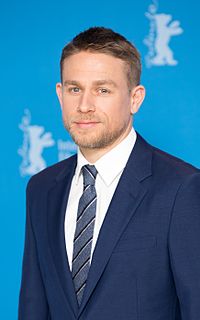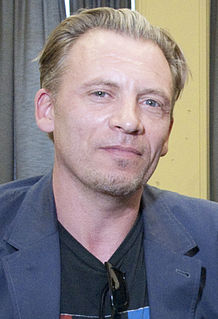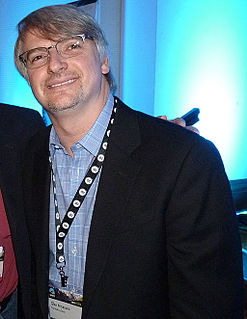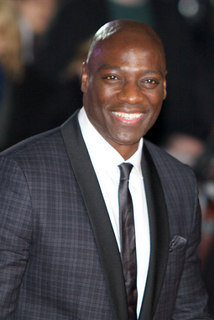A Quote by John C. Reilly
The truth is that filmmaking is not really an actor's medium; it's really a director's medium, so all I can really control is the character that I'm playing. So I try to look for characters that are interesting and engaging and different than what I've done before and hopefully it becomes a good movie.
Related Quotes
Film is a temporal medium as much as it is a visual medium: you're playing with time, and you don't have that ability where someone can pause at home. That's such a fundamental part of what makes filmmaking exciting to me. I don't really have as much interest in any other medium. I just like the control.
In the film industry you never really know if all the various ingredients will come together - sometimes they do, and sometimes they don't. As an actor, you don't have much control over those things. It's a director's medium in that sense. All you can really do is minimise the risks of being involved in something that might not work and look for something that also suits you.
I'm so excited about 'Shattered;' it's something I've really enjoyed working in, and it's very different from anything I've done before. I've always been a character actor and done a lot of support work. I've never really been the lead actor, so I'll try and use what I've learned along the way from the other projects.
Film is such a director's medium; you're really in their hands in terms of the real storytelling. As an actor, you can give a performance moment to moment and some of your takes will be used and some of them won't. I think there are great films you can make with bad performances, and vice versa. There are all combinations of those things. It's really down to the director what happens, I think, so that's why it's really good to work with very talented, bold directors.
If you know what it is before you even start, it's not as interesting. Central to being an actor is pretending, and the adventure of it all. That's why you become a junkie for different kinds of situations. I try to attach myself to people who really inspire me, and directors who are really passionate. That way, I can give myself more fully and trust the impulse behind why the film is being made, and I can be a little more irresponsible in finding out what the character is. I have to worry less about what the character means if I trust the director.
I remember in the Carpenter version, you got acquainted with the characters and really knew them. It was a real character piece. Each actor was serviced in the movie, and we tried to do that in this movie as well. I like the fact that there was a European, first-time director. I'd known of him because I'm from Europe. I knew him as a commercial director and thought one of his commercials was great. I thought it was an interesting take on such a big-budget cult classic.
You can actually improvise a lot as a voice actor. It's not that entirely different than shooting a live action movie; the characters mouths are quite easy to manipulate once all the information is built into the computer. So you can improvise a lot and it doesn't matter really how far along they are in the process they can really just make the character say something different.



































